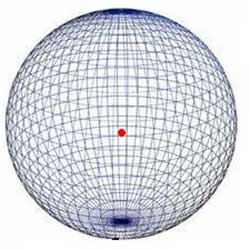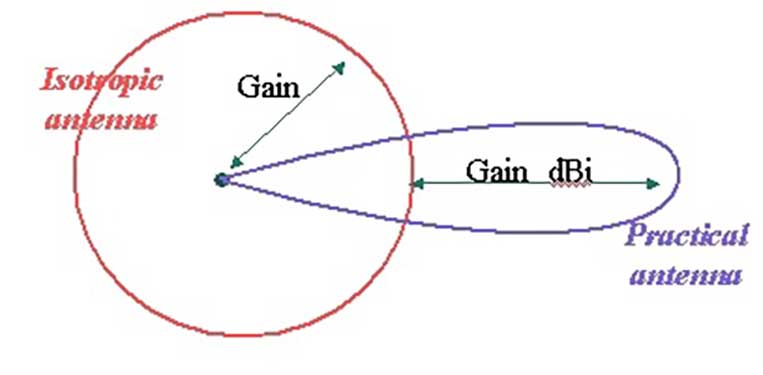dB vs. dBi: What Gain Actually Means
Cell phone signal boosters are complicated pieces of equipment. The right one can make your life a lot easier by ensuring seamless, strong internet connections. Choosing the right signal booster and supporting cellular antennas with sufficient power gain to boost your cellular signal is the key. There are many things to consider and here we are going to discuss dB, dBi and gain and what all these mean to signal boosters.
We fix poor cell phone signal! Find the right signal booster for you:




What is Gain?
When the power coming out of an equipment is greater than the power coming into the equipment, it is said to have a gain in power. When you add a signal booster to your home or business, the device takes the existing signal and amplifies or boosts the power, thus making it possible for a stronger internet signal or connection. Measuring gain allows you to choose the perfect device for your needs. The amount of gain is measured in decibels.
What is dB?
dB, or decibel, is how we measure the ratio of input to output power. This is a ratio and not an absolute value. This measures the intensity of the power level of an electrical signal by comparing it to a given scale. Amplifiers cause a gain in power measured in dB and it is indicated by a positive number. Coax cables can cause a loss of power. This is measured in negative dB.
What is dBm?
Decibel per milliwatt, or dBm, is another measure for your cellular signal. dBm is a concrete measure of the power level and used to measure signal strength in wire and cables and in your signal booster. This is the most accurate measure available. The amount of strength measured in dBm will determine the signal booster that will cover the area you need.
What is dBi?
As we continue to get into the more technical aspect of the cell phone booster and signal gain, we need to discuss dBi and its meaning. dBi stands for “decibel relative to isotrope”. Similar to dB, dBi is a ratio. Antenna manufacturers use dBi to measure antenna performance. Your signal booster comes with an antenna with a dBi value, so this is important to know.
Isotropic Antenna
The “i” stands for isotrope, which refers to an isotropic antenna pattern. This pattern is one which radiates power uniformly in all directions. The isotropic antenna is not a real antenna, but rather a model in which gain is measured against. This is a hypothetical antenna with a zero dB power rating, or no gain in and of itself. It is a representation of the pattern of radio waves reflected from the point source.

This is the graphical representation of an isotropic antenna pattern. The red dot in the middle is the point source and the grid is the pattern of the power from the center.
How is dBi Measured?
Antennas may have a rating measured in dBi. This is the amount of power an antenna can send or receive from a specific direction. To the end of the circle of this isotropic antenna is a gain of zero dB. Any gain outside of this circle is the gain of the antenna or “gain dBi”. Another way to put this is, the power in the strongest direction divided by the power that would be transmitted by an isotropic antenna emitting the same total power. Here is the related formula:
G = 10 log10 (IX / IZ )
G=Gain
10 log10 =the standard logarithm measure of relative power (gets this into dB)
IX =the intensity of the antenna in a single direction at a certain distance
IZ =the electromagnetic intensity of an isotropic antenna at the same distance
Here’s a visual that illustrates this formula.

Signal boosters typically use a dipole antenna, which is an antenna that points signal in one direction. The typical gain of the dipole antenna is 2.15 dBi.
Antennas will generally have a maximum gain rating in dBi and a non-circularity rating in dB. So the higher the dBi rating, the more powerful the antenna is and whether it will cover the area you need.
Relating This to Signal Boosters
So the antenna’s power gain is important. Two measurements factor into this gain: the antenna’s electrical efficiency and its directionality. Knowing how well an antenna converts radio waves received from a specific direction into electrical power, or vice versa, will ensure you are installing a powerful enough antenna to pick up or transmit the radio waves from the signal booster to the nearest cell phone tower. If you have an indoor antenna, knowing the dBi will ensure you install an antenna which will cover the area you want from an amplifier system.
Another way is using an antenna with a higher dBi ratio. This will enhance your cell phone booster strength and efficiency.
What Do I Do With This Information?
Shopping for a cell phone booster involves many pieces of information and now you may understand a little more about what some of the numbers on the specs mean. We still recommend that you speak to one of our technicians about your particular situation. When they start to talk in dB, dBi and signal gain, you will be able to follow along with their recommendations and choose the signal booster that will fit your needs.
How Can I Boost My 4G, LTE, or 5G Signal?
Wilson Amplifiers is the leading provider of cellular signal boosters. Cell phone boosters amplify 5G, 4G, and LTE for any phone with any carrier for home, office, or vehicle.
We seriously hate dropped calls and poor coverage, so it's our goal in life to stomp out spotty signal:
- Free consultation (ask us anything) with our US-based customer support ( sales@wilsonamplifiers.com ) or call us at 1-800-568-2723 .
- Free shipping.
- Better signal or industry-leading 90 money-back guaranteed. No questions asked.
- We want everyone to be satisfied, so we provide lifetime technical support and a 2-year warranty for all products.
Ask us anything and we'll be glad to help.
Interested in Learning More? Check Out Our Signal Boosting Info Center


Money Back Guarantee

Technical Support